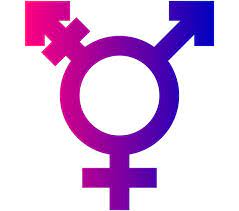Hormone Replacement Therapy (HRT) has become a popular option for many individuals looking to manage symptoms related to hormonal imbalances, particularly during menopause or gender transition. While HRT can offer significant relief from discomforting symptoms, it’s not without its potential downsides. Whether you’re considering HRT or are already on it and experiencing some side effects, understanding what to expect can help you navigate your journey with more confidence. Let’s dive into the details!
What Is HRT and Why Do People Use It Anyway?
HRT, or Hormone Replacement Therapy, involves the administration of hormones to supplement or replace those that the body is no longer producing adequately. For women, this often means estrogen and progesterone during menopause, while trans individuals might use estrogen or testosterone as part of their transition. The primary goal of HRT is to alleviate symptoms such as hot flashes, night sweats, mood swings, and more, while also providing long-term benefits for bone density and heart health.Low Estrogen Symptoms Female
People turn to HRT for various reasons, but most commonly, it’s about taking back control of their bodies and feeling more like themselves again. Imagine being able to say goodbye to those annoying hot flashes or mood swings that can throw you off your game. HRT can be a game-changer, but it’s essential to approach it with a solid understanding of both the benefits and potential side effects.
Common Side Effects: What to Expect on HRT
As with any treatment, HRT comes with its share of side effects. Some of the most common ones include breast tenderness, bloating, and fatigue. These symptoms can vary in intensity, and for some people, they might be mild or even manageable. However, it’s essential to pay attention to what your body is telling you, especially when starting a new medication.
The adjustment period can be different for everyone. Some may experience side effects for just a few weeks, while others may take longer to find their balance. It’s all part of the process, and keeping an open line of communication with your healthcare provider can help you navigate these initial bumps in the road.
Mood Swings and Emotional Rollercoasters: The Truth
One of the more talked-about side effects of HRT is mood swings. Many people report feeling like they’re on an emotional rollercoaster due to hormonal fluctuations. This can be particularly challenging, especially if you are already prone to mood changes. Some may experience heightened emotions, such as increased irritability or bouts of sadness, while others might feel euphoric.
But it’s not just about mood swings; it’s also about general emotional well-being. Some individuals find that HRT helps stabilize their mood, especially when transitioning. It can be a mixed bag, and recognizing that adjustments may be necessary can empower you to make informed decisions about your treatment.
Weight Changes: Gaining or Losing? Here’s the Lowdown
Weight changes are often cited as a common concern when starting HRT. Some individuals may experience weight gain, particularly if they’re using estrogen, while others might notice weight loss or stabilization. The reasons behind these changes can be multifaceted—ranging from water retention to changes in metabolism and even shifts in appetite.
It’s important to remember that weight fluctuations are entirely normal, but they can also be frustrating. Monitoring your diet and staying active can help mitigate unwanted weight gain, while embracing a positive body image can make the experience more manageable. Consulting with a nutritionist or a personal trainer can be beneficial for creating a plan that aligns with your goals.
Skin and Hair: How HRT Affects Your Appearance
HRT can have a significant impact on your skin and hair, which is often a mixed bag of good and bad. Many people report improvements in skin texture and moisture, leading to a more youthful appearance. On the flip side, some may experience acne flare-ups or changes in hair thickness. Hormonal changes can stimulate oil production in the skin, which could lead to breakouts, especially in those who have struggled with acne in the past.
Hair can also be affected, with some individuals experiencing hair thinning while others may notice an increase in hair growth in certain areas. This variability can be quite personal, so understanding your own body’s response to HRT can help you adapt and take care of your skin and hair accordingly.
Blood Clots and Other Serious Risks: Stay Informed
While many side effects of HRT are manageable, it’s crucial to be aware of the serious risks involved. One of the most significant concerns with HRT, especially estrogen therapy, is the increased risk of blood clots. This can lead to serious complications like deep vein thrombosis or pulmonary embolism. Understanding your personal risk factors, including family history and lifestyle, is key to making informed decisions about your HRT journey.
In addition to blood clots, there are other risks to consider, such as an increased risk of certain cancers, depending on the type of hormones used and the duration of therapy. Regular check-ups and screenings can help catch any potential issues early, empowering you to stay on top of your health while on HRT.
Tips to Manage Side Effects for a Smoother Journey
Managing side effects of HRT doesn’t have to be a daunting task. A few tips can make your experience much smoother. First, maintaining a healthy lifestyle through balanced nutrition and regular exercise can help mitigate many side effects, from weight changes to mood swings. Incorporating stress-reducing activities like yoga or meditation can also foster emotional balance.
Another effective approach is to stay hydrated and prioritize sleep. Drinking enough water can alleviate bloating and help with skin health, while quality sleep aids in overall well-being. Lastly, keeping a symptom journal can help you track how your body responds to HRT and identify patterns, making conversations with your healthcare provider more productive.
When to Talk to Your Doc: Signs You Shouldn’t Ignore
While many side effects of HRT are normal, there are certain signs that shouldn’t be ignored. If you experience severe headaches, chest pain, unexplained swelling in your limbs, or significant mood changes that affect your daily life, it’s essential to consult your healthcare provider promptly. These symptoms could indicate more serious complications that require immediate attention.
Additionally, if side effects become overwhelming or intolerable, don’t hesitate to speak with your doctor. There are various options for HRT, and adjustments to dosage or type can often alleviate unwanted symptoms. Remember, your health and comfort should always come first!
Hormone Replacement Therapy can be a transformative experience for many, but it’s crucial to approach it with a well-rounded understanding of potential side effects. By staying informed, managing symptoms proactively, and maintaining open communication with your healthcare provider, you can navigate your HRT journey with confidence. Whether you’re just starting out or are already on your path, remember that you’re not alone, and there are resources available to support you every step of the way!


